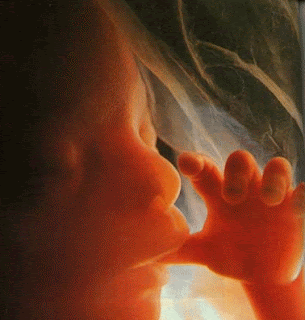 False prophets, wolves in sheep's clothing – yes they’ve been around a long time. If you read the Old Testament – which I hope you do regularly – you’ll encounter many false prophets, along with a few true ones. Generally, it wasn’t easy for the people of the time to differentiate between false and true prophets. But it wasn’t impossible, because there’s a key difference between the two, one that still holds true today.
False prophets, wolves in sheep's clothing – yes they’ve been around a long time. If you read the Old Testament – which I hope you do regularly – you’ll encounter many false prophets, along with a few true ones. Generally, it wasn’t easy for the people of the time to differentiate between false and true prophets. But it wasn’t impossible, because there’s a key difference between the two, one that still holds true today.The false prophet inevitably tells people what they want to hear, while the true prophet tells people what God wants them to hear, and the two messages are never the same. That’s why a false prophet seldom, if ever, asks for sacrifice. Why not? Because telling people they must sacrifice doesn’t win hearts and minds. People don’t want to hear the truth when it hurts; and yet the hurtful truth is often the sign of the true prophet.
Jesus, of course, gives us another way to separate the false from the true prophet: “By their fruits you will know them.” And, trust me, our world today is filled with prophets; and just like Biblical times, far more false than true – yielding a lot of bad fruit.
Who’s today’s true prophet? Believe it or not, you and I. Each of us is called to be a prophet in today’s world. We’re all called to perform the prophet’s primary mission: to bring God’s Word to His people.
Being a prophet doesn’t mean telling the future. Oh, that can be a small part of the prophet’s message, but it’s not the critical part. For example, I can predict to someone who has rejected Jesus Christ and His commandments that his life will be marked increasingly by sadness and despair, that it will never experience the joy, the real happiness, that God wants for him.
You see, brothers and sisters, being a true prophet means leading people to the truth. Being a false prophet means denying the truth…or denying that there is any such thing as truth. This denial of truth is a topic that Pope Benedict addresses frequently. He calls this movement in our society the “dictatorship of relativism.”
We see it in evidence through moral relativism when sociologists or anthropologists make statements such as this:
Some cultures once approved of human sacrifice while others didn’t. And so human sacrifice isn’t universally bad. It’s fine in those cultures that approved it, wrong in those that didn't.This same kind of relativism also appears at the individual level:
Mary thinks abortion is acceptable, but Ellen doesn’t. Each is equally entitled to her view. And who am I, or anyone else, to judge?We see this sort of relativism at work in our legislatures and courts on issues like abortion and same-sex marriage…and even when specifically religious issues are addressed.
Before he was Pope, Cardinal Ratzinger and the Congregation for the Doctrine of the Faith caused a firestorm of relativist criticism with a document reaffirming the unique role of Jesus Christ and the Catholic Church in God's redemptive plan. This was news? Well…in an age of relativism, apparently so.
As a frontal assault by false prophets on the very possibility of objective truth, relativism is by far the most destructive force of our time. It turns both private and public life into moral swamps. It’s apparent too in the attack on religious freedom we are defending against today in this country.
The question for us: what can you and I do?
First, always speak and support the truth…the unchanging, eternal truths of our faith. And live the truth. That’s right, live the commandments. Don’t listen to those who try to convince you that the Church’s teachings are out of date and don’t reflect the needs of today’s world. And finally, carry the truth.
Remember, God places people in our lives, sometimes for a lifetime, sometimes for just a moment. Sometimes they are placed there as an opportunity for us to act, to do something positive for God. And sometimes they are there to teach us something. But they are always there to remind us that we are to carry Jesus Christ to others; and we are to do so by seeing Jesus Christ in others.
And by your fruits they will know you are a Christ-bearer, a true prophet of Jesus Christ.





























